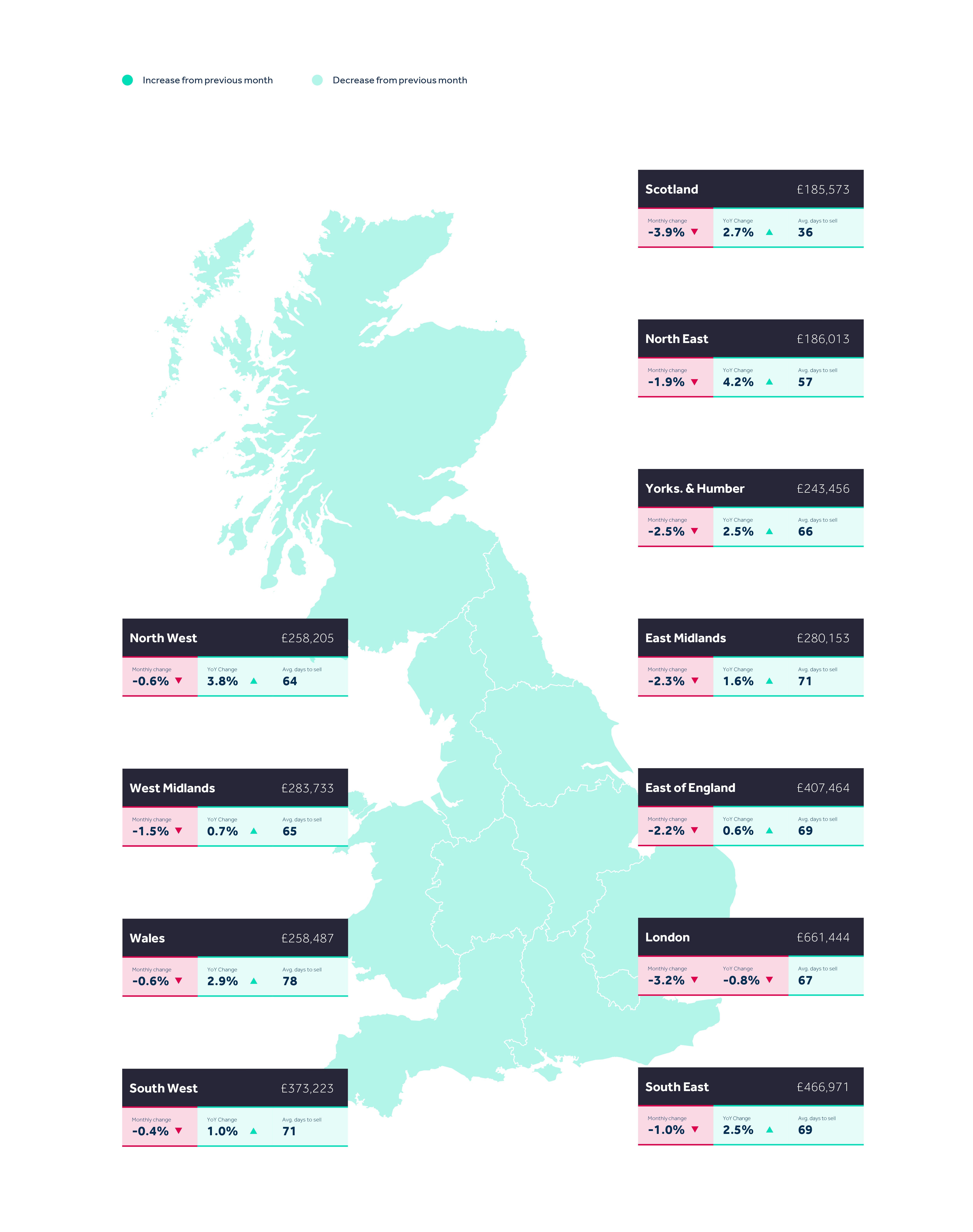
The average price tag on a home fell by more than £6,000 month-on-month in December, according to a property website.
Across Britain, new seller asking prices dropped by a seasonal 1.7% or £6,395 this month to £360,197, Rightmove said.
Despite the usual festive lull, activity remains substantially stronger than a year ago, the website said.
This is laying the groundwork for a potentially busy Boxing Day for home mover activity, with buyers and sellers searching online.
Looking ahead to 2025, Rightmove predicts that new seller asking prices will rise by a further 4% overall in 2025, helped by anticipated falls in mortgage rates.

Tim Bannister, director of property science at Rightmove, said: “Despite this monthly drop, prices have risen by 1.4% compared with this time in 2023, broadly in line with our prediction of a 1% rise in prices this year.
“We are now looking ahead to the traditional Rightmove Boxing Day bounce in home mover activity, which has increasingly become a key date in the housing market calendar.”
A looming stamp duty deadline is a potential dampener for some in 2025, the website said.
From April, the “nil rate” band for first-time buyers in England and Northern Ireland will reduce from £425,000 to £300,000.
Rightmove said it has seen signs that sellers of smaller properties in higher-priced areas, such as London and the South East of England, are trying to trade up or just sell before the deadline to avoid the higher stamp duty charges.
House prices are holding up most strongly for first-time buyer type properties in more affordable areas, which are set to be less affected by the stamp duty changes, Rightmove said.
Prices for typical first-time buyer homes in the North East of England, for example, have increased by 1.0% this month.
After the important first three months of the year in 2025, a lot depends on how quickly normal activity is resumed
Mr Bannister added: “Looking at our data and the UK’s underlying housing needs, there are lots of reasons to be positive about next year. However, as we’ve seen several times this year, the market is sensitive to unexpected events and the direction of travel can change.
“The stamp duty changes are a cloud over the market at the moment, with some groups much more impacted than others, and therefore keen to avoid the additional charges.
“After the important first three months of the year in 2025, a lot depends on how quickly normal activity is resumed with higher stamp duty in England.
“A (Bank of England base rate) cut and some mortgage rate falls early on in the year would help to settle the market and provide a boost to sentiment and consumer confidence.”
Steven Holden, director at estate agents Holden Copley in Nottingham, said: “Naturally, December brings a seasonal slowdown in new listings as many shift their focus to the festivities. However, we expect the traditional post-Christmas surge in activity to kickstart the new year, with Boxing Day marking the beginning of a busy period.”
The forces that pushed up rents haven't entirely gone away
The report was released as a lettings index from property firm Hamptons said that rental price growth eased to the slowest rate for four years in November.
Average rents on newly-let properties in Britain rose by 2.6% annually, marking the slowest annual increase since a 2.4% year-on-year rise was recorded in November 2020.
The average monthly rent on a newly-let property in November was put at £1,382, which was £35 higher than a year earlier.
However, between November 2020 and November 2024, rents have increased by nearly a third (31.6%), the report said.
Aneisha Beveridge, head of research at Hamptons, said: “The current level of growth is similar to pre-Covid times when rents typically rose between 2% and 3% a year.
“However, the forces that pushed up rents haven’t entirely gone away. Tenants renewing contracts continue to see increases well above these levels, but the pace of these increases will slow as their rents climb closer to market rates.”







